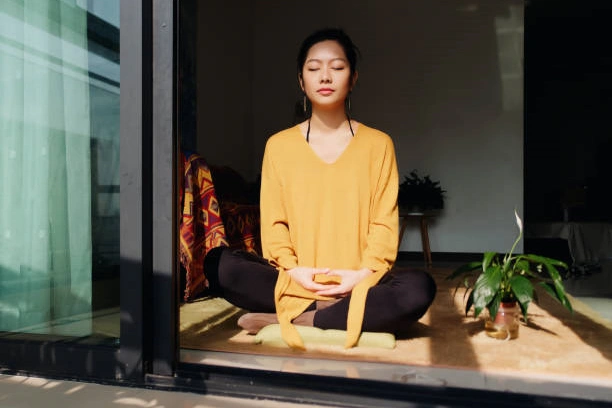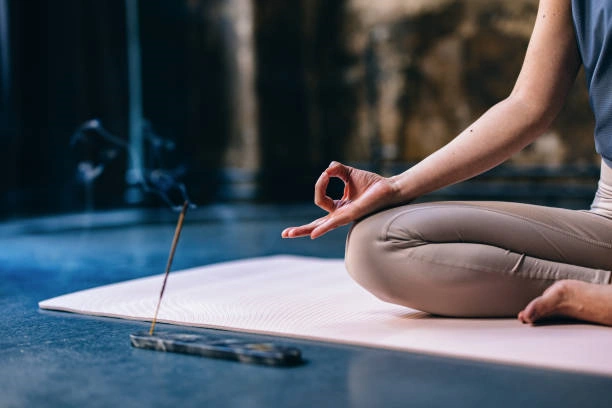A Blessing for Insomniacs: Meditation Therapy to Improve Sleep Quality
When faced with insomnia, we often turn to temporary solutions, but in the long run, it is more crucial to develop good sleep habits and a healthy mental state. Meditation, a psychological training method rooted in Eastern wisdom, has repeatedly proven its powerful effects on improving both sleep quality and duration in recent scientific research.
How to Improve Sleep Quality
Step 1: Relieve Stress and Calm the Mind
The benefit of meditation for sleep lies in helping us release mental burdens. Practicing simple breathing meditation before bed, focusing on each deep breath, can effectively reduce daily tension and anxiety, allowing the brain to gradually relax.
Step 2: Adjust Biological Rhythms and Guide Sleep
Regular meditation practice can regulate the body and mind, particularly with significant effects on the autonomic nervous system. Deep meditation acts like a guide, helping the mind detach from the distractions of reality and enter a state of restful calm, similar to that of an infant. This process influences the secretion of melatonin and helps restore the body’s natural biological clock.

Step-by-Step Meditation Practice
Beginner Level: Basic Breathing Meditation – 5 Minutes of Bedtime Mindfulness
- Prepare the Environment:
Ensure your bedroom is quiet, comfortable, and at an appropriate temperature. Minimize disruptions from light and sound. Find a stable sitting position, such as sitting on the edge of the bed or a yoga mat, keeping your back straight but relaxed, with legs crossed or in a comfortable position. - Start Meditation:
Close your eyes and take a deep breath in, then slowly exhale. Repeat this a few times to clear your mind and focus. Begin to concentrate on your breathing, paying attention to the sensation of air entering and leaving your nose or the rise and fall of your chest and abdomen. - Maintain Focus:
When your mind starts to wander (which is normal), don’t criticize yourself. Gently bring your focus back to your breathing. You can try counting your breaths—counting each exhale or inhale from 1 to 10. If you reach 10, start again, and if your mind drifts, reset to 1. - Daily Practice Suggestion:
Beginners can start with 5 minutes of breathing meditation before bed each night. As time goes on, gradually increase the duration to 10-15 minutes.
Intermediate Level: Deep Relaxation and Visualization Meditation – A Full-Body Relaxation Experience
- Body Scan:
Continue sitting comfortably and begin to observe sensations in your body, starting from your toes and slowly moving upward to the top of your head, like a scanner. With each body part, mentally tell yourself to “relax,” consciously releasing any tension until your entire body feels light and calm. - Visualization Meditation:
Shift your attention to constructing mental images, such as imagining yourself walking along a peaceful forest path, hearing birds chirping, smelling the fresh scent of pine, and feeling the breeze on your face. Or, envision yourself sitting by a lake under the starry sky, with the calm water reflecting the stars and the gentle sound of waves lapping the shore. Let your mind fully immerse in this serene environment. - Daily Practice Suggestion:
After completing the basic breathing meditation, spend 5-10 minutes on deep relaxation or visualization meditation. Experiment with different scenes to find the imagery that best helps you relax and fall asleep.

Consistency: Building a Daily Meditation Habit and Adjusting Your Routine
- Regularity:
Establish a daily meditation routine, whether in the morning or evening. Choose a fixed time for meditation practice, making it a part of your life. Even if you’re busy, aim to set aside at least 10 minutes each day for meditation, gradually increasing this to over 30 minutes. - Sleep Routine:
Combine meditation with a regular sleep schedule, such as going to bed and waking up early, and staying physically active during the day. This helps regulate your internal clock and strengthens the sleep-improving effects of meditation. Avoid overeating at dinner or intense exercise before bed, as these can interfere with sleep quality.
Through this gradual meditation practice, you will find that meditation not only helps you fall asleep faster but also improves your overall sleep quality, leaving you feeling energized and refreshed upon waking. Remember, meditation is a skill that takes time and patience to master. However, with persistence, you will reap the rewards of better sleep. May you find deeper peace on your meditation journey and enjoy a better sleep experience.
Conclusion: Embrace Peace, Awaken Vitality
Insomnia is not invincible; it requires patience, determination, and the right strategies to overcome. Meditation, as a key to unlocking high-quality sleep, is waiting for every insomniac willing to give it a try. Let’s embark on this healing journey to the depths of the soul, turning sleepless nights into moments of peace and waking up to mornings filled with energy.








